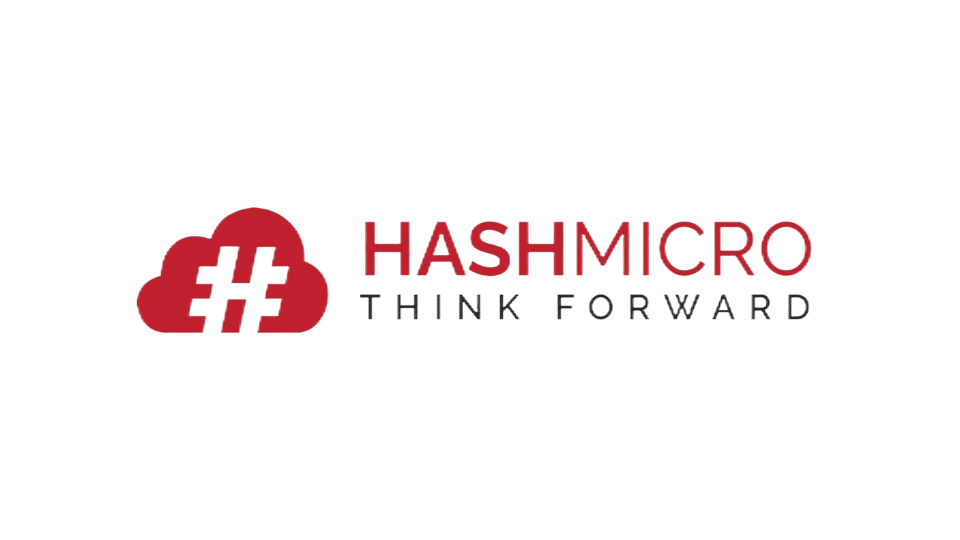If you want to grow your business and increase your sales, you need to have a solid strategy for managing your customer relationships and marketing campaigns. CRM combined with marketing automation has emerged as a powerful toolset for businesses looking to enhance their marketing efforts and optimize customer interactions.
By seamlessly integrating these two systems, businesses can streamline their processes, boost efficiency, and deliver personalized experiences that drive sales and foster long-lasting customer relationships. In this article, we will explore the transformative potential of CRM with marketing automation and delve into the key strategies and benefits of leveraging this dynamic duo for your business’s marketing success.
Table of Content:
Table of Content
What is CRM?
CRM is a strategy and set of technologies used by businesses to manage and analyze interactions with their customers throughout the customer lifecycle. It is designed to help companies build strong and lasting relationships with their customers by providing a central repository of customer data and facilitating various customer-focused activities.
This system allows businesses to track and organize customer information, monitor sales and marketing activities, and provide better customer service.
What is Marketing Automation?
Marketing automation refers to the use of technology and software to automate and streamline marketing tasks and processes. For instance, the best marketing automation software is capable of automating email marketing, lead generation, social media posting, and campaign management.
It involves utilizing software platforms and tools to automate repetitive marketing activities, manage campaigns, and nurture leads. This tool enables marketers to create personalized campaigns, deliver timely content to prospects and customers, and track the performance of their marketing efforts.
Key Differences Between CRM vs Marketing Automation
CRM and marketing automation are two distinct systems that businesses use to improve their sales and marketing efforts. While they are related and often work together, they serve different purposes and have different functionalities. The following are the differences between them:
Focus and scope
CRM primarily focuses on managing and optimizing customer relationships throughout the customer lifecycle. It acts as a centralized hub for storing and organizing customer data, facilitating effective customer communication, and enabling personalized interactions. CRM systems typically include features such as contact management, sales pipeline tracking, customer service management, and reporting.
On the other hand, marketing automation is centered around automating marketing processes and workflows to nurture leads, convert prospects into customers, and drive revenue.
Marketing automation platforms provide tools for automating email campaigns, lead scoring, lead nurturing, social media management, and analytics. They aim to streamline marketing efforts, increase efficiency, and deliver targeted and personalized marketing messages. If you want to strategize and reap the benefits, you can talk to marketing consultancy services in Dubai or elsewhere.
Functionality
CRM systems excel at capturing, storing, and managing customer information, allowing businesses to have a holistic view of their customers. They enable organizations to track interactions, manage sales opportunities, and provide superior customer service. CRM systems are typically used by sales teams, customer support departments, and marketing teams to enhance customer relationships and improve customer satisfaction.
In contrast, marketing automation platforms offer features that help automate marketing tasks and workflows. They allow businesses to create and execute targeted marketing campaigns, track and analyze campaign performance, and engage with leads and customers across multiple channels. Marketing automation tools are commonly utilized by marketing teams to optimize lead generation, lead nurturing, as well as customer engagement efforts.
Integration and data flow
CRM systems serve as a central repository of customer data, integrating information from various sources such as sales interactions, customer support tickets, and marketing campaigns. This holistic view of customer data enables organizations to gain insights into customer behavior, preferences, and needs. CRM systems can integrate with other business tools such as email clients, customer support software, and analytics platforms to provide a seamless flow of data across departments.
Marketing software also requires access to customer data but primarily focus on collecting and leveraging marketing-specific data. They integrate with various channels and tools like email marketing software, social media platforms, and website analytics to capture and track leads and customer engagement. Marketing automation systems often provide data insights that can be shared with CRM systems to enrich customer profiles and enhance marketing strategies.
Also read: CRM with Marketing Automation: How to Use and Why?
Why CRM and Marketing Automation Integration are Important
CRM and marketing automation are two powerful tools that can greatly benefit businesses. Integrating the two can provide several advantages and improve the overall efficiency and effectiveness of a company’s marketing and sales efforts. Here are the key reasons why CRM with marketing automation is important for businesses:
Better visibility
This integration provides businesses with better visibility into their customer interactions and marketing campaigns. By combining customer data, businesses can gain a comprehensive view of customer preferences and engagement across various touchpoints. This enhanced visibility enables businesses to make informed decisions, personalize marketing messages, and tailor sales strategies based on a deeper understanding of their customers.
Streamlined sales processes
When a lead is generated through marketing efforts, the integration ensures seamless transfer of lead information from the marketing automation system to the CRM. This automation eliminates the need for manual data transfer, reduces the chances of errors, and saves time for sales representatives. With a streamlined sales process, businesses can accelerate lead conversion, improve sales productivity, and enhance overall customer experience.
Synchronized data
CRM integration with marketing automation ensures that data remains consistent and up-to-date across both platforms. Customer information, such as contact details, purchase history, and engagement data, is automatically synchronized between the two systems. This synchronization eliminates data silos and ensures that all departments, including sales and marketing, have access to the same accurate and real-time customer information. As a result, businesses can facilitate cross-department collaboration.
Improved lead nurturing
Lastly, with this integration, businesses can develop more effective lead-nurturing strategies. Marketing automation tools automatically trigger personalized email campaigns, follow-ups, and lead scoring based on customer behavior captured in the CRM. This allows businesses to deliver timely content to nurture leads throughout the sales funnel. By aligning marketing and sales efforts, businesses can improve lead quality, increase conversion rates, and optimize their marketing ROI.
How to Integrate CRM with Marketing Automation
While CRM and marketing automation serves different purposes, their integration can significantly enhance a company’s marketing efforts. By connecting the two systems, businesses can leverage customer data stored in the CRM to deliver personalized and targeted marketing campaigns through the marketing automation platform. To ensure successful integration, it is essential to align and synchronize them effectively. Below, we provide four valuable tips for integrating them:
Personalize marketing and sales communication
Utilize the combined power of CRM and marketing automation software to personalize your messaging from the outset. This enables you to target your audience effectively and enhance lead conversion rates. By transferring demographic information from your CRM to the marketing automation tool, you can automate repetitive tasks for your employees. This valuable data can be used by your marketing team to craft targeted campaigns and paid advertisements.
Implement lead scoring
Lead scoring accelerates the lead response process, increasing the likelihood of conversions. By leveraging both platforms, you can identify high-value prospects who are most likely to become customers. Consequently, targeted marketing materials can be sent to these leads, enhancing efficiency and effectiveness.
Minimize duplicate data
Avoid overlapping tasks between the two systems to prevent customer frustration and overload. While unifying these tools provides centralized data and easy access, duplicating customer information can irritate customers and lead to false reporting or compliance issues. Regularly monitor your system to identify and remove duplicates, ensuring a smooth customer experience.
Adapt and refine your practices
Finally, anticipate challenges that may arise after the initial integration of CRM and marketing automation systems. Establish a plan to efficiently and cost-effectively identify, implement, and fine-tune changes to your marketing and sales strategies in response to the software integration.
HashMicro: The Best CRM with Marketing Automation
HashMicro is cutting-edge CRM software with exceptional capabilities for marketing automation. The CRM provides an intuitive interface for creating email campaigns. Users can design visually appealing email templates, schedule automated email sequences, and track their campaign performance. Furthermore, with this automation capability, businesses can send targeted emails to their leads at the right time.
HashMicro’s CRM Software also excels in managing leads. It allows businesses to efficiently capture and track leads throughout the entire customer journey in a centralized repository. With this feature, marketing teams can easily capture leads. The CRM also enables lead scoring, which helps prioritize leads based on their level of engagement and likelihood of conversion. As a result, marketing teams can focus their efforts on the most promising leads, resulting in higher conversion rates.
In addition to these features, it provides comprehensive analytics and reporting functionalities. Businesses can gain deep insights into their marketing performance, track key metrics, and measure the effectiveness of their campaigns. This data-driven approach allows marketing teams to make informed decisions, optimize their strategies, and allocate their resources more efficiently.
Conclusion
In summary, CRM and Marketing Automation are two powerful tools that serve distinct yet complementary purposes. By harnessing the power of data and automation, companies can enhance their customer relationships, drive targeted campaigns, and ultimately boost their bottom line. From capturing leads to measuring campaign effectiveness, CRM with marketing automation offers a comprehensive solution for businesses looking to optimize their marketing strategies.
One example of reliable CRM software that excels in marketing automation is HashMicro CRM. With its comprehensive set of features, it streamlines marketing efforts and maximizes marketing potential. Unlock your business’s true potential today with HashMicro and get up to 50% off on the Productivity Solutions Grant. To experience the benefits of the software yourself, you can request a free demo here.






































